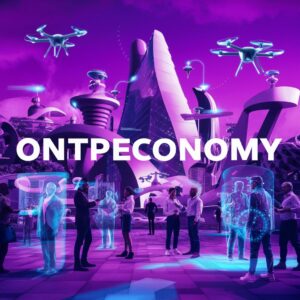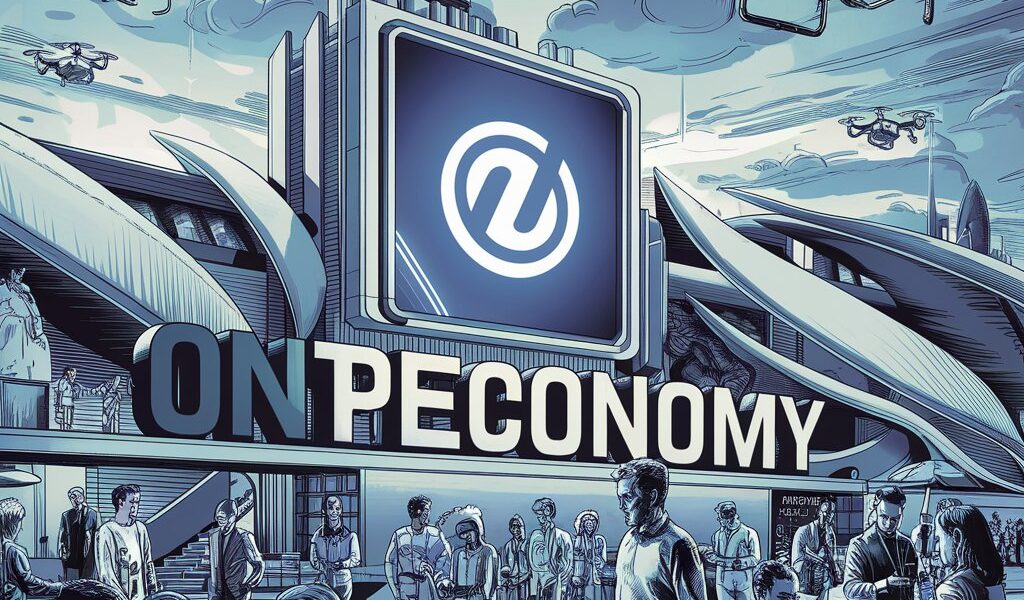Imagine a world where your personal and professional life intertwine seamlessly, driven by an innovative economic model that prioritizes collaboration, sustainability, and empowerment. Welcome to the era of Ontpeconomy. This groundbreaking concept is reshaping how we think about value creation in our daily lives and within communities. As society grapples with ongoing challenges like inequality and environmental degradation, Ontpeconomy emerges as a beacon of hope—offering pathways to not only navigate these issues but thrive amidst them.
Curious about what this all means for you? Let’s dive into the fascinating realm of Ontpeconomy: its principles, benefits for individuals and businesses alike, along with inspiring success stories illuminating the path forward. Get ready to explore how this transformative approach could redefine your understanding of economy!
What is Ontpeconomy?

Ontpeconomy is a fresh economic framework that emphasizes interconnectedness and shared value. Unlike traditional models focused solely on profit, Ontpeconomy considers the broader impact of actions on individuals, communities, and the environment.
This innovative concept integrates technology, collaboration, and resource sharing to create sustainable systems. It encourages participation from various stakeholders—individuals, businesses, and organizations alike—to co-create solutions addressing pressing social issues.
At its core, Ontpeconomy champions transparency and inclusivity. It seeks to empower people by providing them with tools for active engagement in their economic choices. The goal is not just to survive but thrive collectively while fostering resilience against future challenges.
By reimagining how we exchange goods and services, Ontpeconomy opens doors to opportunities previously overlooked in conventional paradigms. This dynamic approach promotes well-being alongside financial growth as fundamental elements of success.
Introduction to Ontpeconomy
Ontpeconomy is a relatively new concept that’s capturing attention across various sectors. It merges technology and economic principles to create a more efficient, transparent system of value exchange.
At its core, Ontpeconomy emphasizes the importance of interconnectedness in our modern world. By leveraging digital platforms and decentralized networks, it aims to reshape how we think about resources.
This innovative approach has implications not only for individuals but also for businesses and communities. It encourages collaboration rather than competition, fostering an environment where everyone can thrive.
The rise of Ontpeconomy aligns with trends like sustainability and social responsibility. As people become increasingly aware of their impact on the planet, this framework offers solutions that benefit society as a whole while promoting individual prosperity.
The Principles of Ontpeconomy
Ontpeconomy revolves around a few core principles that redefine economic interaction. At its essence, it seeks to prioritize transparency and collaboration among participants. This fosters trust within communities and encourages shared decision-making.
Another key principle is sustainability. Ontpeconomy promotes practices that balance profit with environmental responsibility. It challenges traditional models by emphasizing long-term benefits over short-term gains.
Moreover, the concept of decentralization plays a crucial role here. By redistributing power away from central authorities, ontpeconomy empowers individuals and small businesses alike to participate actively in shaping their economic landscape.
The use of technology underpins these principles. Advanced tools facilitate better communication, streamline processes, and ensure inclusivity for all stakeholders involved in ontpeconomic activities. This integration enhances efficiency while lowering barriers to entry for participants eager to join this innovative movement.
How Ontpeconomy Can Benefit Individuals
Ontpeconomy opens new doors for individuals by promoting sustainable living. By emphasizing resource-sharing and community engagement, it fosters a sense of belonging.
People can access goods and services without the burden of ownership. This model reduces waste and encourages smarter consumption habits. Imagine borrowing tools or sharing transportation with neighbors rather than buying them outright.
Financially, Ontpeconomy helps individuals save money. Membership in sharing platforms often costs less than traditional purchases. This allows people to allocate their savings toward experiences that matter more to them.
Additionally, skill-sharing opportunities flourish within an Ontpeconomic framework. Individuals can teach others while learning valuable skills themselves, enhancing personal growth and community ties.
Moreover, this economy nurtures creativity by allowing users to monetize underutilized assets or talents easily. The potential for income generation becomes accessible to many who may have been overlooked in conventional economic models.
Case Studies: Success Stories of Ontpeconomy
One remarkable case study showcases a community in rural India that adopted Ontpeconomy principles. Residents pooled resources to create a local currency based on mutual aid and support. This initiative boosted small businesses and invigorated the local economy.
In another instance, an educational institution implemented Ontpeconomy by encouraging students to barter skills instead of using traditional payment methods. Students traded tutoring services for tech support or creative projects, fostering collaboration while reducing financial barriers.
A startup in Europe utilized Ontpeconomy to establish an innovative workspace where freelancers exchanged expertise through skill sharing sessions. This not only enhanced networking opportunities but also cultivated a vibrant community driven by shared knowledge and creativity.
These success stories illustrate the transformative power of Ontpeconomy across various sectors, highlighting its potential for fostering resilience and collaboration among individuals and communities alike.
How Ontpeconomy Can Benefit Businesses and the Economy
Ontpeconomy offers a fresh perspective on how businesses operate in the modern landscape. By harnessing data-driven insights, companies can make informed decisions that enhance efficiency and productivity.
This innovative approach allows for better resource allocation. Businesses can identify areas of waste and optimize their processes accordingly. As a result, operational costs decrease while output increases.
Moreover, Ontpeconomy promotes collaboration across industries. Companies sharing information and strategies create a collective impact that drives growth within the economy as a whole.
Investors are also attracted to this model. They recognize the potential for sustainable returns through smart investments grounded in concrete analytics rather than guesswork.
The ripple effect is significant—when businesses thrive, so does employment. Job creation leads to increased consumer spending, further stimulating economic activity and fostering community development.
Challenges and Criticisms of Ontpeconomy
Despite its potential, Ontpeconomy faces several challenges and criticisms.
One major concern is the complexity of its implementation. Many individuals and businesses struggle to understand how it works. This can lead to confusion and hesitance in adoption.
Another issue is the risk of inequality. While Ontpeconomy aims to create a more inclusive system, there are fears that wealth could still concentrate among a select few who adeptly navigate this new landscape.
Additionally, regulatory hurdles present obstacles for widespread acceptance. Governments may be slow to adapt or unsure about how to integrate Ontpeconomy principles into existing frameworks.
Some critics argue that the focus on digital platforms might marginalize those without access to technology. This digital divide raises important questions about equity in participation within an evolving economy.
Conclusion:
The future of presents a fascinating landscape. As technology advances, the potential for this new economic model grows exponentially.
Individuals could experience newfound financial freedom and engagement with their communities. Empowering people to take charge of their resources can lead to innovation and creativity.
Businesses may find fresh opportunities as they adapt to these principles. The focus on collaboration over competition might reshape entire industries.
Moreover, the ripple effects on society are profound. Greater equity in resource distribution could promote social harmony and reduce disparities.
Its evolution will depend on collective effort from all stakeholders involved—individuals, businesses, and governments alike.
As we embrace these changes, Ontpeconomy might redefine our relationship with work, consumption, and community engagement in ways we’ve yet to imagine.
**FAQs**
What is the main goal of Ontpeconomy?
The primary goal is to create an inclusive economy that prioritizes sustainability while promoting individual empowerment through collaborative practices.
How does Ontpeconomy differ from traditional economies?
Ontpeconomy emphasizes cooperation over competition, focusing on shared values rather than profit maximization alone.
Can anyone participate in an Ontpeconomic system?
Yes! Anyone can become involved in initiatives promoting Ontpeconomic principles within their communities or businesses.
Are there specific industries where Ontpeconomy works best?
While it can benefit various sectors, areas like renewable energy, local agriculture, and social enterprises often see pronounced success due to their inherent community-oriented goals.
What role does technology play in Ontpeconomy?
Technology serves as a facilitator for connecting individuals and organizations committed to collaborative efforts aimed at sustainable development and resource .
ABOUT US:https://proteomics.uk/




